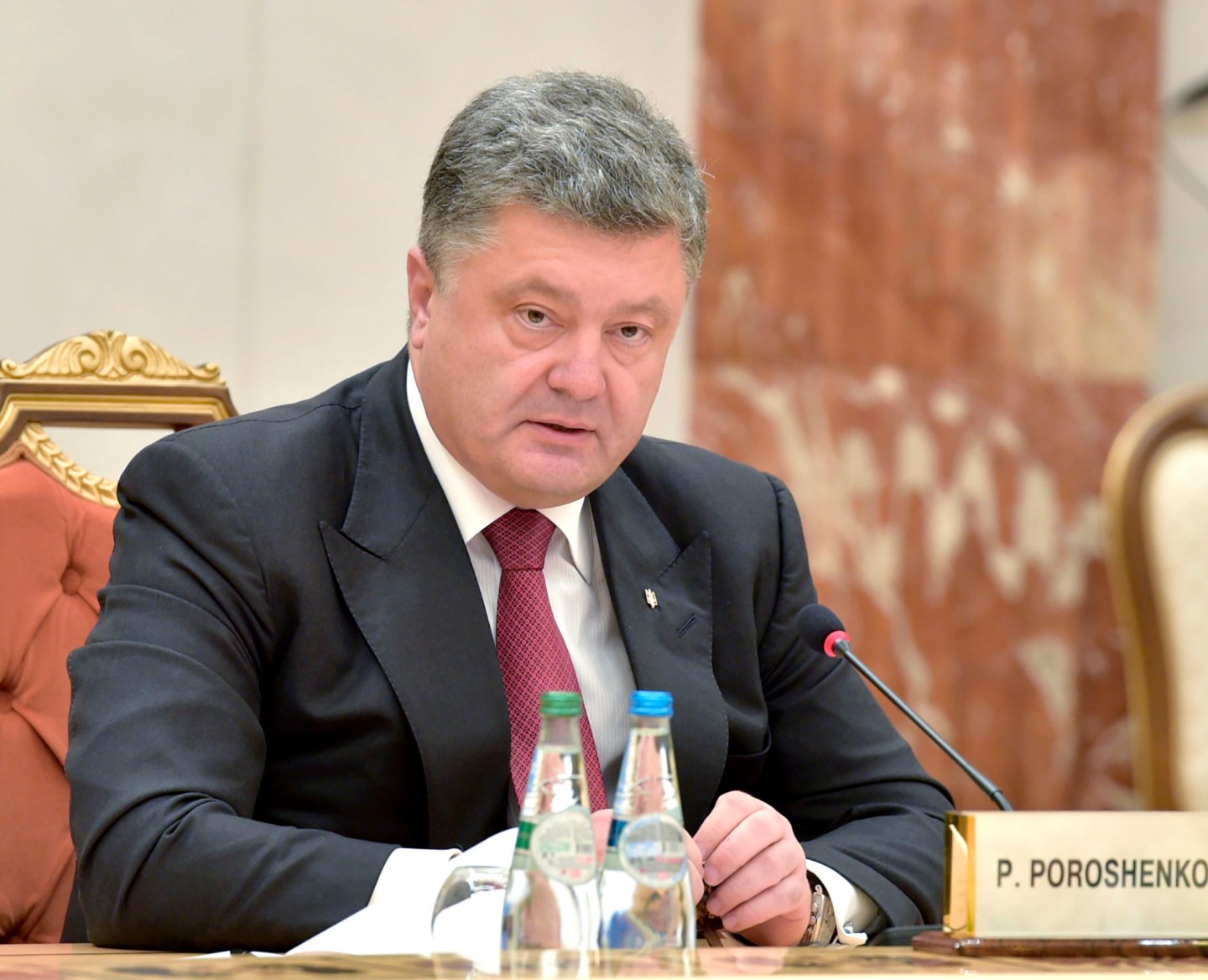European stockmarkets surged Wednesday after statements from the Ukrainian and Russian Presidents suggested they come to an agreement on ending the conflict in eastern Ukraine.
In a brief statement on his official website, Ukrainian President Petro Poroshenko said that the two leaders had agreed in a phone call on “a permanent ceasefire in the Donbass,” –although the statement was later updated to remove the word “permanent”.
“A mutual understanding was reached on the steps that will enable peace to be established,” the statement added, without elaborating any further.
The statement largely corroborated one published earlier on the Kremlin’s website, in which President Vladimir Putin’s office said that “the points of view of the two presidents on possible ways out of the crisis situation match to a significant degree.”
The news comes as a huge relief to financial markets, which have had to price in increasing damage to the economies of both Russia and the E.U. as a result of the conflict and the tit-for-tat sanctions that have arisen from it.
However, it was greeted with caution by President Barack Obama, who said it was “too early” to say what the news meant.
“We haven’t seen a lot of follow-up in so-called announced ceasefires,” Obama said, adding: “having said that, if Russia is prepared to stop financing, arming, training, in many cases joining with “Russian troops activities in Ukraine and is serious about a political settlement then that is something we all hope for.”
“The situation remains highly dangerous,” Holger Schmieding, chief economist with Berenberg Bank, said in a note to clients. Schmieding argued that the move “looks suspiciously like a Russian move to thwart the new sanctions that the E.U. wants to impose,” and said that Russia had broken previous agreements to end the conflict.
“Russia may not implement the ceasefire, the war could simply go on or easily erupt again at any time,” Schmieding said.
Indeed, the conflict continued Wednesday, with rebels attacking government positions around Donetsk, Russian media reported.
The greatest relief was seen in Moscow early Wednesday, where the ruble rebounded sharply from the all-time lows it had posted against the dollar last week. By 0445 EDT, it was up 1.5% at 36.90 to the dollar. Likewise, the local MICEX benchmark index was up 2.8% at 1439.59.
Further west, the German DAX index rose 1.7%, the French CAC 40 rose 1.4% and the U.K.’s FTSE 100 rose 1.0%, while safe haven investments such as government bonds gave up some of their recent gains. The yield on the German 10-year bond rose to 0.97%, its highest in a week, while the price of gold fell by $5 a troy ounce to $1,264.00, a 10-week low.
The apparent diplomatic breakthrough comes after a week in which Ukrainian forces have suffered heavy losses to a rebel counter-attack that NATO and the Ukrainian government have said was backed by massive and direct support from the Russian armed forces. Moscow denies its forces are in Ukraine, but representatives of soldiers’ families estimates that up to 8,000 troops have been deployed there, suffering hundreds of casualties in the fighting.
The loss of large swathes of territory in the Donetsk and Luhansk regions appears to have convinced Poroshenko that he won’t be able to suppress the rebellion by force, but there is no indication yet that he is ready to talk peace with rebels that he has described as “terrorists.”
Ukrainian officials had earlier this week effectively abandoned plans to reassert control over the two regions, switching from an “Anti-Terrorist Operation” to a strategy of defense against open aggression from Russia.
(Note: this story has been updated to include comment from President Barack Obama, the revision to Poroshenko’s statement, and reports of ongoing clashes around Donetsk.)






